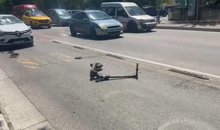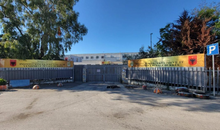
 Flash News
Flash News
Drenova prison police officer arrested for bringing drugs and illegal items into cell
Lavrov: NATO is risking self-destruction with new military budget
Kurti and Vučić "face off" tomorrow in Skopje
Construction worker dies after falling from scaffolding in Berat
The prosecution sends two Korça Municipality officials to trial
"Hot spots and new modes!" Analysis: EU leaders scramble over immigration

European Union leaders gather in Brussels on October 17 and 18 for their regular autumn summit. The meeting is the last before the US presidential election, which will be held in November, as well as the presidential election and EU membership referendum in Moldova, on October 20, and the parliamentary elections in Georgia, on October 26.
In Brussels, talks on Ukraine will be the main focus, although few decisions are expected. The hot topic is expected to be the migration debate, which could have ramifications for some countries hoping to one day join the EU. The summit's draft conclusions, seen by Radio Free Europe, include little news for Ukraine.
In addition to mentioning some kind of "peace summit" that would be held by the end of the year, potentially including Russian participation, the text of the conclusions simply states that "The European Council emphasizes that no initiative can be taken on Ukraine without Ukraine".
The draft document hints that there will be no new sanctions against Russia and that, instead, the leaders, at the end of the summit, will emphasize the need for "full and effective implementation of sanctions and further measures to fight their evasion, including through third countries".
On economic aid, EU ambassadors agreed last week on another 35 billion euros in financial aid for Kiev for 2025, which they took from the frozen assets of Russia's Central Bank in the EU. However, the EU did not agree to extend the sanctions against these assets - from six months to 36 months. This extension would allow other G7 countries, or the group of most industrialized countries, to provide funding as well.
Hungary is currently blocking the extension of the sanctions, and a decision on this matter is likely to be made by Brussels after the US presidential election. In the upcoming elections in Moldova, the summit's draft conclusions highlight the Kremlin's efforts to influence the process, through manipulations and interference in information. Although it does not take sides publicly, it is clear that Brussels hopes that Moldovans will vote for the EU, both in the referendum and in the presidential elections.
Just last week, the EU imposed an asset freeze and visa ban on five people, including Evghenia Gutulin, the pro-Russian governor of the autonomous Moldovan region of Gagauzia. The EU also sanctioned Eurasia, a Russian-based NGO founded to promote Russian interests in Moldova.
In addition, the president of the European Commission, Ursula von der Leyen, recently traveled to the capital of Moldova, Chisinau, where she presented a financial package for this country, worth 1.8 billion euros, for the next three years. For Georgia, the mood is decidedly bleaker.
The draft conclusions point out a " serious concern about the course of action in Georgia, which contradicts the values and principles on which the European Union was founded" and emphasize that recent developments in Georgia endanger the country's path to the EU and "de facto stop the membership process".
The adoption of the so-called "foreign agent law" and the "anti-LGBT law" in Georgia has prompted the EU to cancel high-level political visits to Tbilisi and block some funds dedicated to the country. South Caucasus. Brussels does not rule out the possibility of adopting more measures in the future if Georgia deviates further from democracy.
But the most intense discussion at this week's two-day summit is expected to center around migration. The most controversial line in the draft conclusions concerns "new ways to prevent and combat irregular migration... in accordance with international law."
This is something like a continuation of a letter written by 15 EU member states - addressed to the European Commission in June - in which the need for different partnerships with non-EU countries was emphasized. This could mean paying countries like Tunisia and Turkey to prevent migrants from reaching the EU, or other schemes, such as the one being developed between Italy and Albania - where Rome is building camps to house up to in 40,000 migrants per year, who are caught at sea.
The idea of creating these "external hotspots" outside the EU, where authorities will examine asylum seekers' claims before they enter the EU, is gaining ground. The tougher stance on migration comes weeks after Germany imposed controls across its borders. It followed an attack in western Germany in the summer when a failed asylum seeker killed three people.
Such attitudes also come after anti-immigration parties came out on top in parliamentary elections in Austria on September 29 and are holding up well in recent polls in the Czech Republic and Germany. It is worth noting that the recently formed French Government is also dependent on Marine Le Pen's far-right National Rally party, and that similar political forces are directing or influencing governments in other major EU states. of, like Italy, the Netherlands and Sweden.
It is only a small number of countries, notably Spain, that are reluctant to adopt the EU's more restrictive migration policies. While the EU summit will not go into detail about other countries that could play a similar role as Albania in terms of migrants, it is possible that other EU candidate countries, for example those in the Western Balkans , to be asked for something similar./ REL
Latest news



Second hearing on the protected areas law, Zhupa: Unconstitutional and dangerous
2025-06-30 22:18:46



Israel-Iran conflict, Bushati: Albanians should be concerned
2025-06-30 21:32:42

Fuga: Journalism in Albania today in severe crisis
2025-06-30 21:07:11
"There is no room for panic"/ Moore: Serbia does not dare to attack Kosovo!
2025-06-30 20:49:53

Temperatures above 40 degrees, France closes nuclear plants and schools
2025-06-30 20:28:42
Lavrov: NATO is risking self-destruction with new military budget
2025-06-30 20:13:54
Turkey against the "Bektashi state" in Albania: Give up this idea!
2025-06-30 20:03:24

Accused of sexual abuse, producer Diddy awaits court decision
2025-06-30 19:40:44



Kurti and Vučić "face off" tomorrow in Skopje
2025-06-30 18:44:12
Tourism: new season, old problems
2025-06-30 18:27:23


Construction worker dies after falling from scaffolding in Berat
2025-06-30 17:51:44




Almost free housing: East Germany against depopulation
2025-06-30 16:43:06

Hamas says nearly 60 people killed in Gaza as Trump calls for ceasefire
2025-06-30 16:14:15
Drownings on beaches/ Expert Softa: Negligence and incompetence by institutions!
2025-06-30 16:00:03


European ports are overloaded due to Trump tariffs
2025-06-30 15:30:44
The prosecution sends two Korça Municipality officials to trial
2025-06-30 15:19:54

Lezha/ Police impose 3165 administrative measures, handcuff 19 drivers
2025-06-30 14:55:04
Young people leave Albania in search of a more sustainable future
2025-06-30 14:47:52
Record-breaking summer, health threats and preventive measures
2025-06-30 14:36:19


Constitution of the Parliament, Osmani invites political leaders to a meeting
2025-06-30 14:07:54

Heat wave 'invades' Europe, Spain records temperatures up to 46 degrees Celsius
2025-06-30 13:42:02
Accident in Vlora, car hits 2 tourists
2025-06-30 13:32:16

Kurti confirms participation in today's official dinner in Skopje
2025-06-30 13:03:27

Fight between 4 minors in Kosovo, one of them injured with a knife
2025-06-30 12:38:45

Report: Teenage girls the loneliest in the world
2025-06-30 12:20:40
Commissioner Kos and Balkan leaders meet in Skopje on Growth Plan
2025-06-30 12:07:59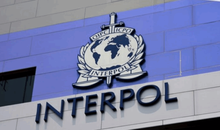
Wanted by Italy, member of a criminal organization captured in Fier
2025-06-30 11:55:53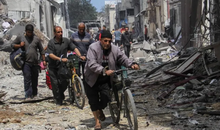
Hundreds of families displaced by wave of Israeli airstrikes in Gaza
2025-06-30 11:45:17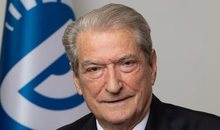
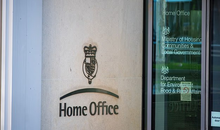
Zenel Beshi: The criminal who even 50 convictions won't move from Britain
2025-06-30 11:23:19
A new variant of Covid will circulate during the summer, here are the symptoms
2025-06-30 11:14:58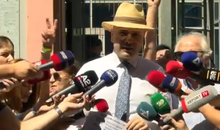
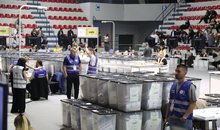
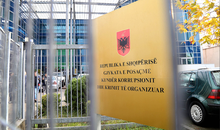
"Partizani" case, trial postponed to July 21 at the Special Court
2025-06-30 10:41:05
Uncontrolled desire to steal, what is kleptomania, why is it caused
2025-06-30 10:30:08
Requested change of security measure, hearing for Malltez postponed to July 7
2025-06-30 10:24:32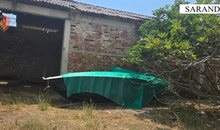
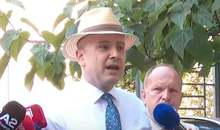

Output per working hour in Albania 35% lower than the regional average
2025-06-30 09:54:35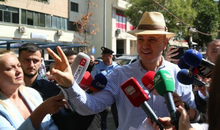
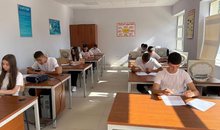
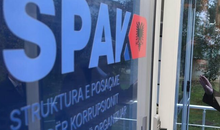
The trial for the "Partizani" file begins today
2025-06-30 09:27:57
22 fires in the last 24 hours in the country, 2 still active
2025-06-30 09:21:28
How is the media controlled? The 'Rama' case and government propaganda
2025-06-30 09:13:36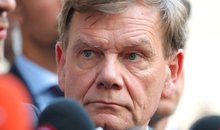
German top diplomat: Putin wants Ukraine to capitulate
2025-06-30 09:00:07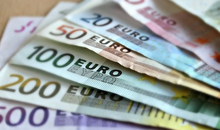
Foreign exchange, how much foreign currencies are sold and bought today
2025-06-30 08:44:38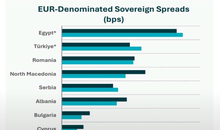
Chart/ Sovereign risk for Albania from international markets drops significantly
2025-06-30 08:26:38
Horoscope, what do the stars have in store for you?
2025-06-30 08:11:44
Clear weather and passing clouds, here is the forecast for this Monday
2025-06-30 07:59:32
Morning Post/ In 2 lines: What mattered yesterday in Albania
2025-06-30 07:47:37
Milan make official two departures in attack
2025-06-29 21:57:23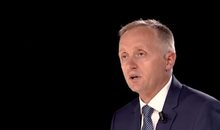
6 record tone
2025-06-29 21:30:46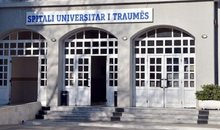
4-year-old girl falls from balcony in Lezha, urgently taken to Trauma
2025-06-29 21:09:58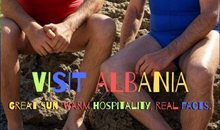
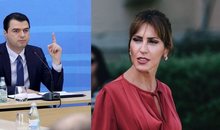
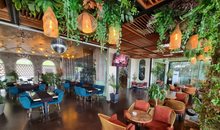
Assets worth 12 million euros seized from cocaine trafficking organization
2025-06-29 19:39:43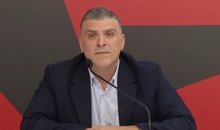
Fire in Durrës, Blushi: The state exists only on paper
2025-06-29 19:17:48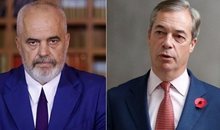

Fire endangers homes in Vlora, helicopter intervention begins
2025-06-29 18:27:51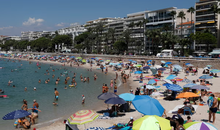
France implements smoking ban on beaches and parks
2025-06-29 18:02:08
England U-21 beat Germany to become European champions
2025-06-29 17:42:49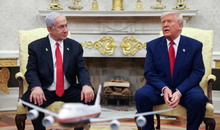
Trump criticizes Israeli prosecutors over Netanyahu's corruption trial
2025-06-29 17:08:10
Street market in Durrës engulfed in flames
2025-06-29 16:52:57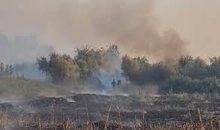
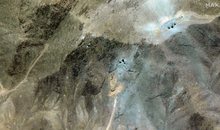
UN nuclear chief: Iran could resume uranium enrichment within months
2025-06-29 16:03:24
Albanian man dies after falling from cliff while climbing mountain in Italy
2025-06-29 15:52:01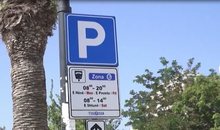

Another accident with a single-track vehicle in Tirana, a car hits a 17-year-old
2025-06-29 15:07:15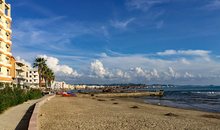
While bathing in the sea, a vacationer in Durrës dies
2025-06-29 14:54:01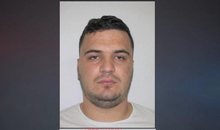
Sentenced to life imprisonment, cell phone found in Laert Haxhiu's cell
2025-06-29 14:26:40
77 people detained in protest, Vučić warns of new arrests
2025-06-29 14:07:46